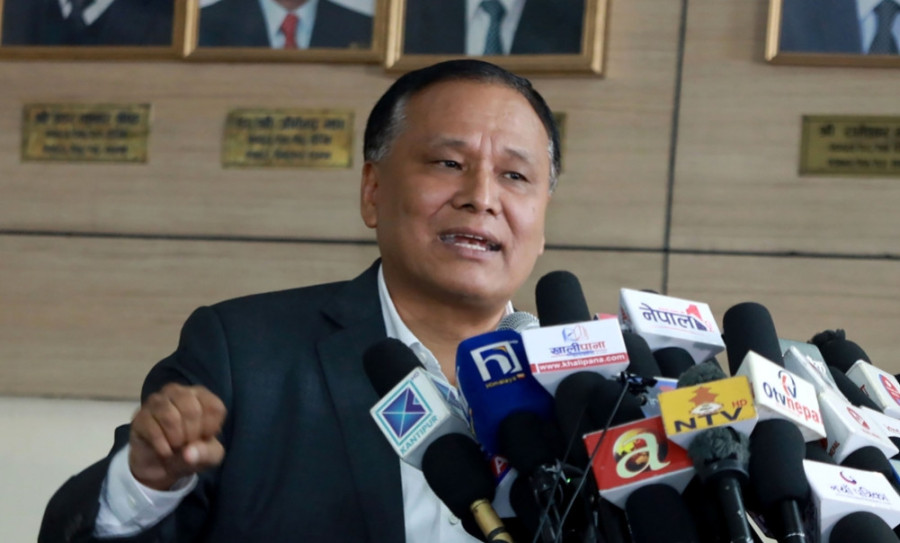National
NEA gives industrialists 15-day deadline to clear dues
The power utility’s managing director Ghising says the government has directed NEA to collect the dues within the timeframe.
Post Report
Nepal Electricity Authority (NEA) Managing Director Kulman Ghising has warned that industrialists must pay their outstanding dues for using electricity through dedicated and trunk lines within 15 days, or the authority will take its measures.
Speaking at a press conference on Wednesday, Ghising said, “If the industrialists do not clear their dues based on the billed amount within 15 days, we will initiate our process.”
He added that the government has already directed NEA to collect the dues within this timeframe.
Ghising expressed confidence that the council of ministers and the Ministry of Energy would assist in recovering the dues if necessary. He said that NEA had previously given a three-month grace period as directed by Prime Minister KP Sharma Oli and the Electricity Regulatory Commission.
He said that the subject has now become a matter of serious public interest, not just the issue of the government, the energy ministry, and the NEA.
Ghising said that the focus should be on resolving the problem rather than disconnecting and reconnecting power lines.
On Tuesday, the Nepal Electricity Authority (NEA) board of directors decided to restore power to several industrial firms that defaulted on electricity bills. The decision was made in a meeting on Tuesday, following a Cabinet instruction on Sunday to resume power supply, which was cut off on October 24 over longstanding unpaid bills.
According to the NEA, the firms owe between Rs8.25 billion and Rs6.65 billion-plus a 25 percent fine. Initially, the NEA had estimated that the firms that used exclusive feeders and trunk lines owed around Rs22 billion, but this amount was adjusted on the advice of a government-appointed commission set up to resolve the dispute.
The dispute is over the use of electricity through dedicated and trunk lines from July 2015 to June 2020. The government had made special arrangements to supply power to industrial firms even as other consumers faced several hours of daily power cuts during the same time.




 16.12°C Kathmandu
16.12°C Kathmandu













